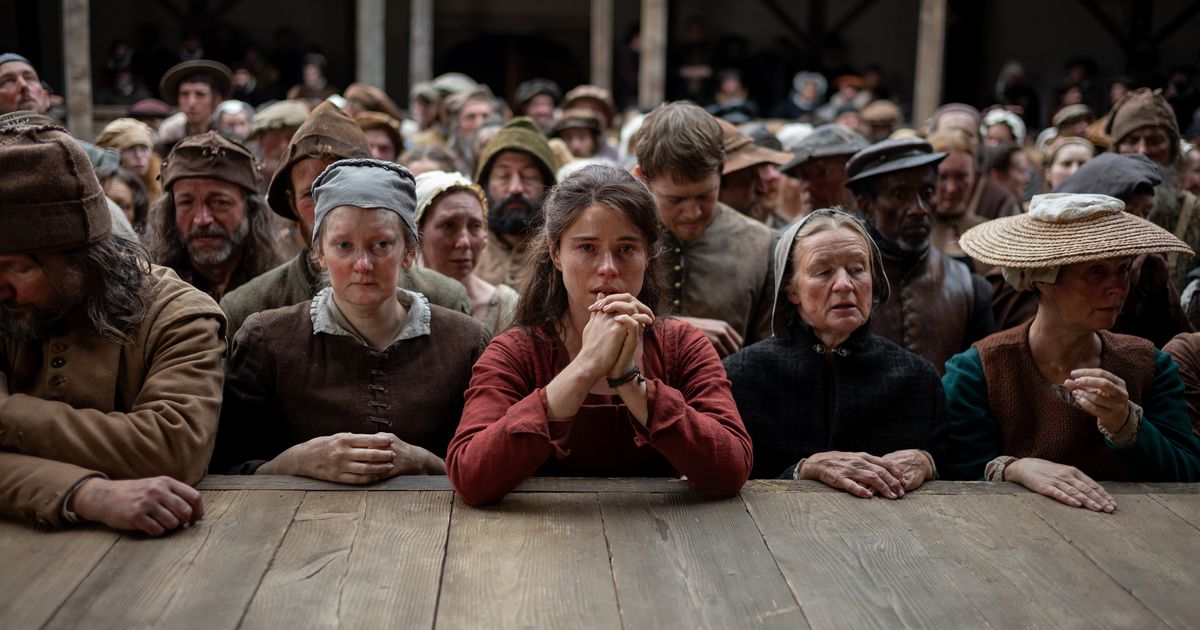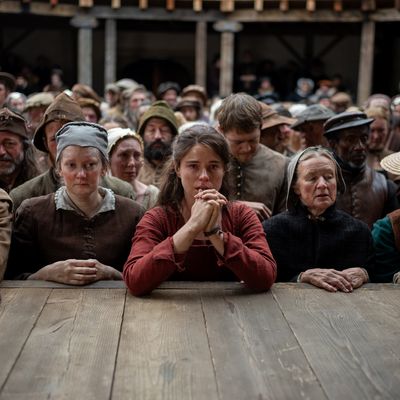
Keeping pace with Hollywood’s perpetual awards horserace. Sign up for the newsletter here.
It’s Hamnet.
Photo: Agata Grzybowska/Focus Features
The concept of an “Oscars villain” is fraught with contradictions and exaggerations. No movie is actually a villain, of course. (“Not even Bohemian Rhapsody?” No. “Not even The Whale?” Well …) But Oscars season tells a story, often multiple stories, and stories need villains if only as a point of relief for the main characters. Thus far, those main characters have established themselves as Paul Thomas Anderson’s One Battle After Another and Ryan Coogler’s Sinners. They’re both artistically ambitious, have struck a chord with critics and audiences, are seen as socioculturally important, and are directed by men who have been welcomed into the Oscars fold with previous nominations but have never won. Other contenders exist, but their bona fides sit in the negative space surrounding the two front-runners. Sentimental Value is small and European and about a famous film director. Marty Supreme is nervy and New York–y and based on a famous table-tennis player. Perhaps if either one of those movies picks up additional momentum via precursor awards, they might attain villain status. But neither one of them feels quite so threatening to the top two — and so likely to elicit groans from the peanut gallery — as Hamnet.
Hamnet is Chloé Zhao’s adaptation of Maggie O’Farrell’s novel, a fictionalized telling of William Shakespeare and his wife, Agnes, dealing with the death of their young son. Over the course of its lauded run through the fall festivals, Hamnet was characterized as the year’s most emotionally devastating film, one whose Oscars ambitions would be boosted by how many voters wept at the film’s conclusion. Delivering on a promise to stir up emotions has indeed been a reliable path to Oscars success in the past. But the better Hamnet looks as an Oscars prospect, the more likely its chances are to play spoiler to heroes One Battle or Sinners and flirt with villainy as a result. A few factors are at play here.
Sinners and One Battle After Another are overwhelmingly beloved by critics and online tastemakers, but both movies feature elements that could make them less appealing to the imagined average Oscars voter. Sinners is, after all, a vampire movie set in the racist American South, and genre doesn’t have a great track record with the Academy. One Battle is a movie that features a violent, anti-fascist revolution in America, far from the war epics that usually reign successful. Neither is the stuff of conventional “Oscars bait” in that they’re not courting the Academy by glorifying its history or the process of making art.
What most people know about Hamnet — it doesn’t open in theaters until November 26, though it premiered at the insular Telluride Film Festival — is that it’s a movie about grieving parents, pastoral England, and William Shakespeare. Superficially, at least, Hamnet fits better in the traditional mold of Oscars-friendly fare. Martin Scorsese fans still haven’t forgiven Ordinary People — a movie about a family grieving the loss of a child — for defeating Raging Bull in 1981, and Spielberg fans haven’t forgotten how Shakespeare in Love upset Saving Private Ryan. To PTA’s and Coogler’s fans, and the people on the wrong side of these past Oscars decisions, Hamnet could be looking threatening.
Despite the best efforts of ABC over the years to forcibly recognize blockbuster movies at the Oscars, the Academy Awards are not a populist endeavor. Handing out trophies for artistic excellence is an inherently elitist activity. But within that elitist framework, popularity matters a lot! And One Battle After Another and Sinners are both very popular movies. Sinners is currently ranked fifth in domestic box office for 2025 with $278 million; One Battle After Another didn’t do nearly as well but still resides inside the top 25 movies of the year with $68 million and counting. Hamnet isn’t going to make a fraction of that for reasons that have nothing to do with how good of a movie it is. Leonardo DiCaprio scampering around in a bathrobe is a better hook for selling tickets than exquisitely performed grief.
One popularity contest that Hamnet did win was the People’s Choice Award at the Toronto International Film Festival. But even that honor comes with a history of backlash. An abridged list of some recent winners: The Life of Chuck; Belfast; Jojo Rabbit; Green Book; Three Billboards Outside Ebbing, Missouri; The Imitation Game; The King’s Speech. Belfast and Jojo Rabbit were scorned as overly sentimental, with the latter joining Three Billboards as being politically problematic. The Imitation Game is best remembered for Harvey Weinstein’s obnoxious “Honor the movie, honor the man” campaign. The King Speech’s and Green Book were the mediocre movies that bested The Social Network and Black Panther, respectively. Oscars villains everywhere you turn!
Chloé Zhao is a critically acclaimed director whose films Songs My Brother Taught Me and The Rider are among the most respected indie movies of the last ten years. But she’s also attracted the kind of criticism that can often feel petty. En route to becoming the second woman to ever win the Oscar for Best Director in 2021, Zhao faced criticism for Nomadland not taking a harsher stance on Amazon. (Frances McDormand’s character spends part of the film working at an Amazon fulfillment center — the film’s producers including McDormand secured the participation of Amazon to allow them to film on site.) A lot of that criticism brought up Zhao’s biographical history as the daughter of a wealthy Chinese industrialist in order to paint her as no true friend of the working class. Following Nomadland, Zhao faced a more pedestrian — though likely more vehement — kind of backlash from fans of the Marvel Cinematic Universe when her film Eternals faced howls of “worst MCU movie ever.”
It’s that contradiction in Zhao — between the daughter of privilege and the filmmaker who went to school in the United States, made some incredible and empathetic films about the American West, and comes across more than a little bit like a hippie — that seems to throw people off. It’s a persona that has drawn in collaborators including Frances McDormand and admirers such as Steven Spielberg (who introduced Zhao when Hamnet played the London Film Festival a few weeks ago) while leading others to anonymously roll their eyes when Zhao does something like lead her festival audiences in a guided meditation before Hamnet screenings. When I asked one insider closely following the Oscars race about Hamnet’s position behind Sinners and One Battle After Another as Oscars front-runners, this person noted with no small amount of dismay, “We’re near guaranteed a toxic dynamic when you have a polarizing female director who already has an Oscar pushing up against two beloved, overdue male filmmakers with more popular movies, PTA especially.”
How much stock do I put in these arguments? When I saw Hamnet I walked away thinking it was an incredible movie with dynamite performances, so to reduce it to a piece of Oscars bait mugging voters for their tears feels both ungenerous and inaccurate. As for the idea that a movie like Hamnet has some kind of built-in advantage because it’s dressed in period clothing and features William Shakespeare? That reads to me like PTSD from Saving Private Ryan fans who can’t accept that Shakespeare in Love was a good movie. It’s been 27 years since that Best Picture decision, which is exactly how long it’s been since a movie that has anything to do with Shakespeare or could credibly be called a costume drama has won Oscar’s big prize.
But nature abhors a vacuum, and the existence of Oscars-race heroes necessitates Oscars villains. Anderson’s Oscar win is long overdue. Coogler deserves to be recognized as one of the brightest talents in the industry. Hamnet — emotional, feminine, directed-by-an-Oscar-winner Hamnet — could still be the movie that thwarts them both. How dare it!

Photo: Courtesy Warner Bros.
I wasn’t here last week to adjust my predictions to get in line with the 2025 Gotham Awards nominations, but suffice it to say that if the Gothams went that hard for the allegedly $175 million budgeted Warner Bros. film — to the tune of six nominations for Paul Thomas Anderson’s One Battle After Another — its front-runner status is secured.

Photo: Jason McDonald/Searchlight Pictures
Call it a hunch. Bradley Cooper’s movie exceeded my expectations, and almost everybody I talk to who has seen it feels similarly. Plus this lineup needs some jostling.
Frankenstein, Hamnet, Is This Thing On?, It Was Just an Accident, Jay Kelly, Marty Supreme, One Battle After Another, Sentimental Value, Sinners, Train Dreams

Photo: Logan White/A24
A Best Director nomination at the Gotham Awards is a step in the right direction, even if If I Had Legs I’d Kick You director Mary Bronstein is currently more of a long shot than I would like her to be.

Photo: Christian Belgaux
I’ve noticed a bit of an enthusiasm gap for this movie as it’s run through the North American film festivals. People like it. Do enough people love it?
Chloé Zhao, Hamnet; Jafar Panahi, It Was Just an Accident; Josh Safdie, Marty Supreme; Paul Thomas Anderson, One Battle After Another; Ryan Coogler, Sinners

Photo: 20th Century Studios via YouTube
A “Cultural Icon Tribute” award from the Gotham Awards after they declined to nominate Jeremy Allen White for Springsteen: Deliver Me From Nowhere does feel like a makeup nomination. But it’s probably the sign of a motivated Oscars campaign that the award is happening to begin with.
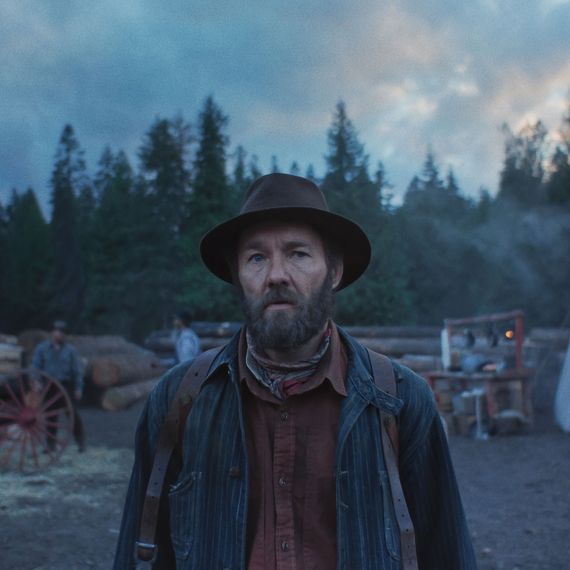
Photo: Train Dreams
Overall good news for Train Dreams at the Gothams with Best Feature and Best Screenplay nominations, but Edgerton not being able to get on to the list of ten lead performances isn’t a great sign.
Timothée Chalamet, Marty Supreme; Leonardo DiCaprio, One Battle After Another; Ethan Hawke, Blue Moon; Michael B. Jordan, Sinners; Jeremy Allen White, Springsteen: Deliver Me From Nowhere
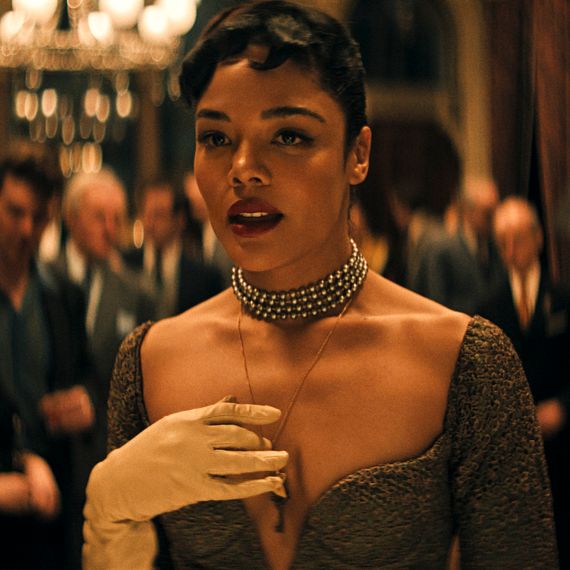
Photo: Amazon MGM Studios
Getting a Best Lead Performance nomination from the Gotham Awards and a Spotlight Tribute award from the same organization on top of that? Tessa Thompson is officially in the game now with her performance as the titular Hedda.

Photo: MUBI/Everett Collection
The film is proving to be less divisive among the critics than I expected, and Lawrence’s appearance on Las Culturistas this week (announcing the Miss Piggy movie she and Emma Stone are making with Cole Escola!) was a hit.
Jessie Buckley, Hamnet; Rose Byrne, If I Had Legs I’d Kick You; Cynthia Erivo, Wicked: For Good; Renate Reinsve, Sentimental Value; Amanda Seyfried, The Testament of Ann Lee

Photo: Warner Bros.
Seeing both Sinners’ Jack O’Connell and Wake Up Dead Man’s Josh O’Connor on various pundits’ longlists makes me nervous that more than a few people will intend to vote for one and actually vote for the other.
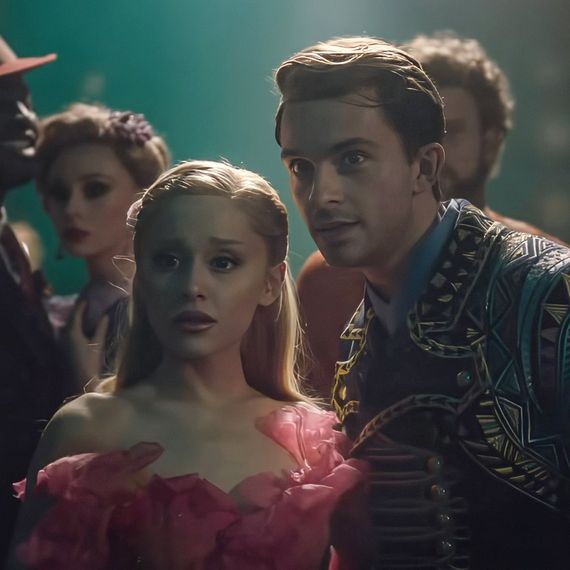
Photo: Universal Pictures/Everett Collection
Only once in history has the People Sexiest Man Alive been nominated at the subsequent Academy Awards. (Johnny Depp for Pirates of the Caribbean: The Curse of the Black Pearl. Nick Nolte was already an Oscar nominee when he was named Sexiest Man Alive in 1992.) He’s sexy, that’s probably enough for now.
Benicio del Toro, One Battle After Another; Jacob Elordi, Frankenstein; Paul Mescal, Hamnet; Sean Penn, One Battle After Another; Stellan Skarsgård, Sentimental Value

Photo: Universal Pictures
The press narrative that Ariana Grande is even better — and with surprising dramatic chops — in the Wicked sequel has me thinking she could win the dang statue.
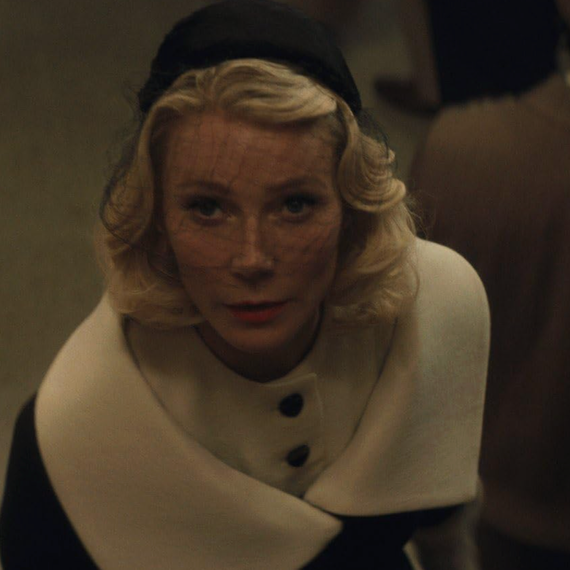
Photo: A24
The more I hear Gwyneth Paltrow’s Marty Supreme co-star Odessa A’zion mentioned as a contender (boosted by her currently being one of the stars of HBO’s I Love LA), the more I worry that the Marty vote will get split.
Inga Ibsdotter Lilleaas, Sentimental Value; Amy Madigan, Weapons; Wunmi Mosaku, Sinners; Ariana Grande, Wicked: For Good; Teyana Taylor, One Battle After Another

